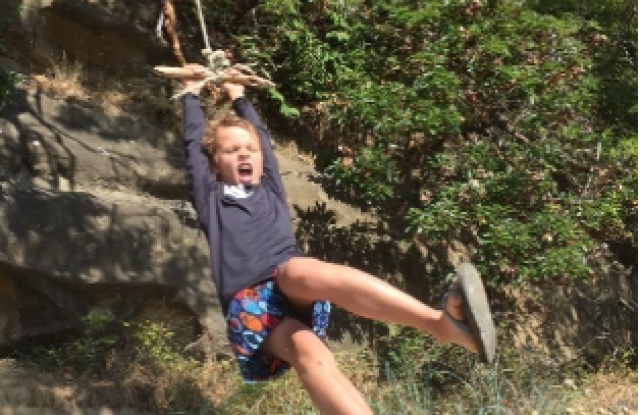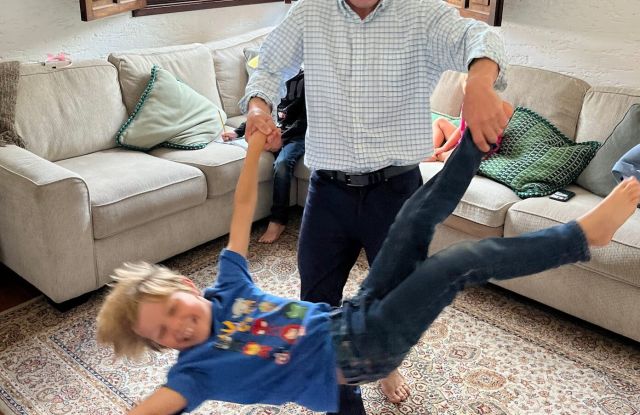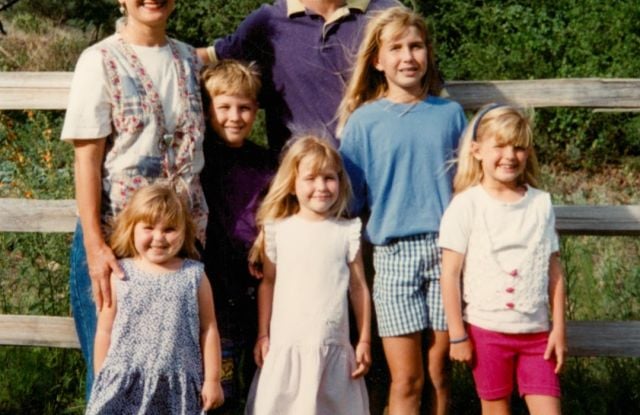My blog about jousting with my daughter’s suitors prompted some valid concern by readers. “Are you being over-protective?” they ask. It’s appropriate that we open ourselves up for a critique on this score. It’s a hard balance and we need help striking it.
We’ve all watched in horror as the coddling mother allows her intimidating four year-old push her around. Similarly, we’ve squirmed when some over-bearing parent has publicly humiliated their child in the grocery store or parking lot.
I believe in risk taking. It’s the only way kids learn. Throw them into the deep end, I say. But you have an obligation to support them and to ensure that they’re not going to drown in that deep end. In the name of “not being overprotective,” a lot of parents fail their children and put them in situations where they haven’t been adequately trained yet. Train ’em well, then turn ’em loose, I say.
We sent our two 17-year-old girls to Africa and Mexico for the better part of a year to minister in the slums. You can’t get much more low down and nasty than that. Yet the experience changed their lives.
In past blogs I’ve advocated limiting TV watching or making young men seeking a daughters’ affections pass through the parental gauntlet. Am I contradicting myself? I don’t think so, and it’s because one of the top duties we have as parents is to help our children acquire wisdom. They learn to discern not by parents removing all boundaries, but as we give them gradually increasing opportunities to make more decisions themselves.
I look at it this way. At the age of one, parents have got veto power over 95% of what a child does. In order to teach responsibility and discernment, they need to give up veto power at a rate of about 5% a year (my estimate). By the time a child reaches 17, a parent should have veto power over say, 15% of their life.
By that point, as a parent, your ability to protect them is a function of your relationship and very little else. Try and control with authority or with money and you’ll engender bitterness.
There is a parent who is currently emailing and calling me on a regular basis about his 23 year-old daughter who is on a project with us. He worries too much and needs to release more. Yes, she may be doing things differently than he would. But, let it go – she has to make her own mistakes now. Most of us as parents are out of balance in that area.




Seth,
Wise words my friend…wise words. Thank you for sharing. Freedom acompanied with faith has been the greatest blessing my mom has given me. In the same breath, her unfaltering faithfulness to me in the midst of my own shortcomings have been equally important in my life. Keep up the good work Seth.
Christ’s Love,
Kevin
I am lovin’ reading your posts!! It is SO encouraging to find someone expressing in words the things we feel! From being told we are “overprotective” on one end (dating) and yet “absolutely crazy” on the other (allowing our daughter stay in Haiti during a rebel uprising…) You explain it so well!! Thanks!!
I like it, sounds great!
Hi Seth. I a Ame writing my first e book. I do have an overprotective father. I was wondering if you have some information that i can use in my book from a fathers point of view. Perhaps why they get to be so overprotective. Hope to hear from you. Japie
Thanks for the comment. Issues vary. Here are the top 4 in my book.
1. “I was hurt and I don’t want her to be hurt like that.”
2. “It’s a hard, cruel world and my baby is innocent.”
3. “The liberals have an agenda that involves destroying the family.”
4. “I see this flaw in her that she can’t see yet, I need to look out for her till she’s more grown-up.”
You speak the truth, ma’men
This is exactly how I feel. I am sixteen and rarely allowed to sleep out, my parents must know where I am at all times or else I’m grounded. If my parents don’t know someone, then I can’t hang out with them. If I’m a minute past curfew I’m in for the week. If I try to push it back then I get yelled at. If my friends are going to Six Flags I can’t go unless there’s a parent. Any where I go I feel as though they don’t trust me. It get’s to be way to much. I became suicidal as a result. I soon realized cutting wasn’t worth the pain. They made me misserable, so why should I inflict pain upon myself? I resorted to smoking pot and other drug use. When my parents found out I was banned from everyday activities for a month strictly then about three months after that of them watching me like a hawk. I told them why, but they said them being over protective couldn’t be the reason. So when I was done with grounding I started right back up. I can’t take it. I go to visit my sister at college and I act more mature than my age. I’ve passed off for being in my twenties, however, when it comes to making decisions about sports, or advance classes, or friendships, I’m not smart enough to come to conclusions on my own. Please, help me. I have no idea what to do. It’s driving me crazy!
Emily,
I can empathize – when I was 16, I felt so claustrophobic, I wanted to die! I needed more freedom than my parents could give me.
Here’s the crazy thing – your parents are probably feeling as overwhelmed by your situation as you are. They are probably so ready for a change that if a sane course of action presented itself that would help you grow up faster, they’d take it in an instant.
That’s actually good news. They love you and want you to live a happy life. They probably want you to “grow up” and take more responsibility for your life as much as you want to! So, how do you get there? They don’t trust you, and the only way you’re going to help them get there is to prove yourself trustworthy. You have to show them that you will do what you say.
I recommend that you find a third party that you can both trust to help you negotiate out a plan that helps you step into adulthood instead of fleeing your home like a suffocating refugee. Is there someone you can both trust to help you get there?
If not, I’d be happy to ask one of my blog readers whom I trust to help you.
For now, let me pray for you: God, I pray that you give Emily the opportunity to breathe and to express herself. I pray that she gets to show her parents that she can be trusted and that they would see that she is becoming an adult and that she needs to be given more freedom. May she draw near to you in this process and see how much they love her, even if they don’t know how to express it in ways that she can see it. I pray that within a month she has a new optimism in her soul. And I pray it in Jesus’ name.
Okay, look. I’m not supposed to be blogging but hey!? My parents are so overprotective sometimes!!! I can’t even have a sleepover for the premire of my next favorite movie even though schools out because
A: 4 girls is to many
B: They don’t want us keeping them up
C: They don’t want us getting in “trouble”
D: They think that I’m to young to be “partying”. I’m a TEENAGER!!!!!!!
i need help very badly, how do i delete the post above mine ??
Hi Thanks for your post. I’m currently discerning traveling to work in Africa for a year, or possibly 16mths after graduating from University. My parents are staunch Catholics and are hesitant to let me go. I haven’t even excplicitly stated to them that I want to go, have applied and been accepted. I feel like I don’t know how to even start the conversation with them. And that perhaps their immediate reaction will be hurt and anger and they won’t want me to go. But it is my life, and I really strongly feel a calling to go. I’ll learn a lot, and will expand my horizons incredibly. I think it is a turning point in my life.
Thanks for any advice!